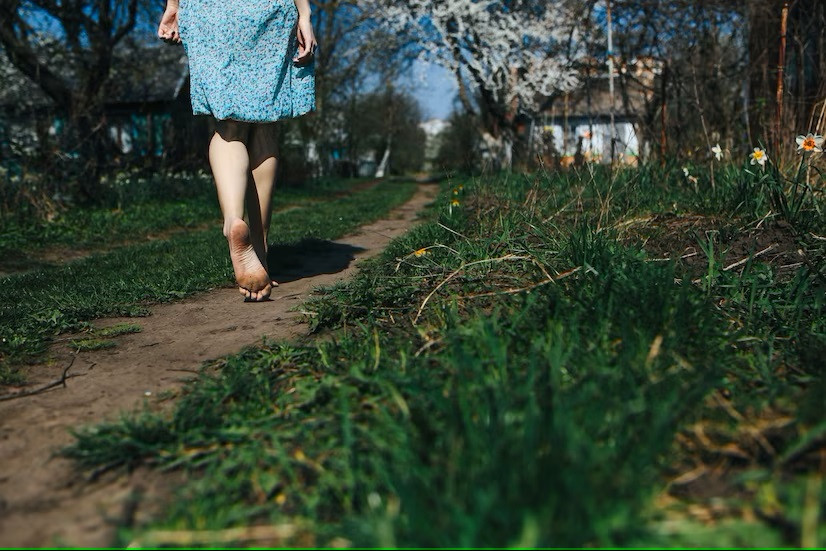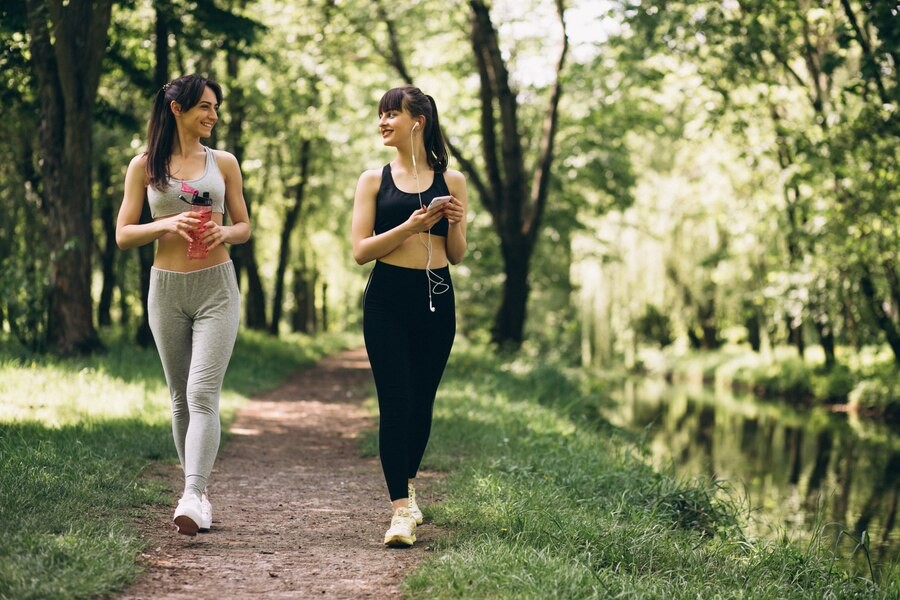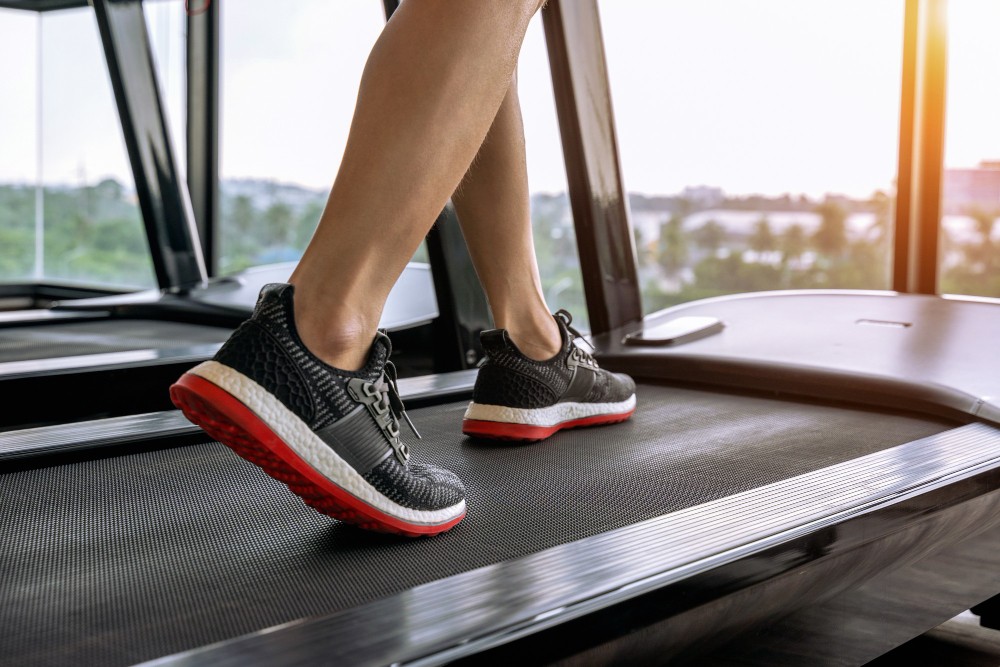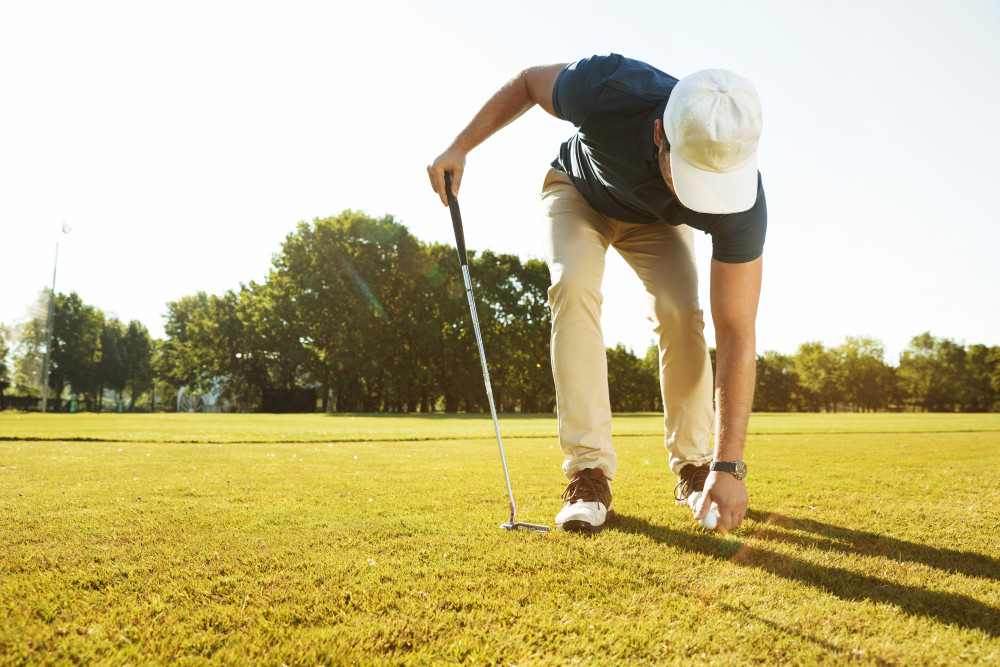Walking barefoot may be something that some people are unfamiliar with. However, walking barefoot provides health benefits for the body.
Benefits of walking barefoot
Walking barefoot facilitates the transfer of electrons from the earth into the body, a practice commonly referred to as grounding or earthing. This technique is associated with therapeutic effects, including:
Fights and reduces inflammation
According to several studies, grounding may assist in lowering bodily inflammation. This is linked to a decrease in oxidative stress and free radicals, both of which are factors in chronic inflammation.
Improves cardiovascular health
There are various cardiovascular health benefits to walking barefoot, especially if you do it regularly and at the right intensity.
The muscles of the feet, calves, and upper legs are among the many joints and muscles in the legs that are used when walking barefoot. Your legs' flexibility, strength, and endurance may all benefit from this. In the end, having a fit body can enhance and support cardiovascular health in general.
Read more: Benefits of Hiking Streets (Incline Walking)
Reduces anxiety
Walking barefoot can also induce a sense of relaxation, with many individuals reporting enhanced mood and reduced feelings of anxiety as a result.
Some other benefits of walking barefoot:
- Better control when the foot is on the ground
- Improved body coordination and balance
- Helps relieve pain
- Better foot mechanics
- Maintains proper range of motion at the joints and ankles
- Reduced risk of bunions, hammertoes or other foot deformities
- Stronger leg muscles to support the lower back
Risks of walking barefoot
Walking barefoot on contaminated soil can increase the risk of hookworm infection. These infections are caused by parasites found in soil contaminated with the feces of infected humans or animals.
Hookworms or hookworm larvae can enter the body through the skin especially when there are small cuts or abrasions. Hookworm infection can cause symptoms such as itchy skin, rash, fever, diarrhea, nausea, wheezing cough, loss of appetite, weight loss, fatigue and anemia.
Severe hookworm infections that go untreated can lead to blood loss, anemia and protein deficiency.
Read more: All About Kremiworms
Tips for walking barefoot safely
Before you start walking barefoot, you need to know these safety tips:
- Make sure you walk barefoot in safe and clean areas. Avoid walking barefoot in areas with potential hazards such as broken glass, sharp objects, hot surfaces or in areas where there is a lot of animal feces.
- Stay away from areas that may be contaminated with chemicals or waste that could cause irritation or infection to your skin
- Pay attention to foot hygiene before and after walking barefoot. Wash your feet with clean water and soap, and dry them well to avoid moisture that could cause irritation or fungal infections.
- Keep the environment around you clean, especially if you are walking in or around your home. Regularly clean floors or surfaces you frequently step on with a dust remover or other cleaning tool to reduce the risk of contamination
- If you are walking on hot surfaces such as asphalt or hot sand, be sure to test the temperature with the touch of your hand first. If it feels too hot, use appropriate footwear to protect your feet from burns or damage.
Several medical conditions affect one's ability to walk barefoot safely. Consider body conditions such as the presence of open wounds, diabetes, or skin problems. If you need medical advice, don’t hesitate to consult with a doctor or utilize the consultation features provided by Ai Care.
Looking for more tips and health tricks, first aid, and other home remedies? Click here!
- dr. Yuliana Inosensia
Ravi Teja Tadimalla (2023). Walking Barefoot: 6 Health Benefits And Risks. Available from: https://www.stylecraze.com/articles/amazing-health-benefits-of-walking-barefoot/
Sara Lindberg (2019). Does Walking Barefoot Have Health Benefits?. Available from: https://www.healthline.com/health/walking-barefoot
Crystal Raypole (2022). 30 Grounding Techniques to Quiet Distressing Thoughts. Available from: https://www.healthline.com/health/grounding-techniques
Cleveland Clinic (2021). Hookworm Disease. Available from: https://my.clevelandclinic.org/health/articles/14072-hookworm-disease












